The Breakdown
Pros
Cons
I take safety seriously and encourage ATGATT riding. From that perspective, the jacket is second only to a helmet in terms of safety and impact resistance. Having the right jacket can be the difference between bumps/bruises and skin grafts. When choosing, one should always prioritize the jacket’s ability to protect you over other factors.
This is especially true when performance riding comes into play. If you venture out on the track or windy roads and have performance on your mind, your jacket needs to keep up. This needs for type of riding prioritize abrasion resistance, but also airflow and comfort. Getting hot, sweaty, and sticky under your gear is more than just a little uncomfortable.
The Fieldsheer Suzuka I have here is an example of a sport jacket that doesn’t require many compromises. The Monaco leather is perforated in all the major areas (more on that below), and it comes with a removable Thermo-guard liner. Level 2 armor is present on the shoulders and elbows, and there is a foam backplate. The Suzuka is designed to seamlessly integrate with the matching Fieldsheer Rider pants.
Words/Photography: Cameron / Model: Bryce
Features
- 1.2 – 1.4mm partially-perforated Monaco cowhide leather
- Phoslite® reflective panels in the arms and rear speed hump
- Removable Thermo-guard liner
- Integrated CE Level 2 armor in the shoulders and elbows
- Thermoplastic armor on the elbows/shoulder (to complement CE L2)
- Leather stretch panels underneath the arm, sides of torso, and back.
- Plenty of pockets
- Zipper integration with matching pants
- EVA Rear aerodynamic speed hump and back protector
Looks
There’s no mistaking the Suzuka for anything other than a race jacket. Armored shoulders and a tapered waist, combined with its close overall fit, give the Suzuka an aggressive and racey look.
The back features an aerodynamic speed hump, solidifying the Suzuka’s aggressive and athletic posture. The top of the hump has perforated material, and when you’re moving along, it does a good job sucking in air and sending it down your back.
The white/black/yellow scheme is quite aggressive and badass looking; high-visibility strips are found on both arms and the sides of the front/back sections. It very much looks the part and stands right next to popular jackets in this segment, such as the Alpinestars Atem, Dainese Racing 3, and Scorpion Clutch.
Protection
When it comes to protection, my preference is leather over textiles. I prefer leather, in part because of its superior abrasion resistance, but also because of how it feels to wear. Often, textile jackets are stiff and take a long time to break in. By the third wear, the Suzuka had noticeably relaxed in the arms and felt more natural to wear.
The Suzuka is all leather – even the stretch panels on the torso, arms, and back. Integrated into the leather is CE level 2 armor in the shoulders/elbows, with reinforcing plastic armor surrounding them to supplement their protection and impact resistance.
Back protection is provided via the protective hump and removable foam backpad. Both the hump and the backpad are made of an anti shock foam material.
The thickness of the leather varies from 1. 2mm – 1.4mm, which is a good balance between weight and protection.
Comfort
The Suzuka is a comfortable jacket, though it’s more comfortable on the bike than it is off of it. The pre-formed shape of the jacket makes it a little awkward to walk around in. I find I have to leave it undone when I’m not on the bike or else my mobility is noticeably hindered.
Out riding is where the Suzuka feels at home.
Airflow
The Suzuka breathes extremely well. Hot weather riding in leather can be sweaty, but the Suzuka does a good job in keeping you cool due to the extensive use of perforated leather. Perforations run up the front sides, actual sides, shoulders, back, and arms. All sections enjoy strong airflow, especially once you’re doing 30 mph or more.
The rear speed hump is a surprisingly good air dam, drawing a strong flow that travels down your back. This effect is amplified when you’re tucked forward a bit, with air flowing over and behind the helmet.
If you live somewhere hot but want the protection and style of a leather race jacket, the Suzuka is a well-ventilated choice.
Heat Management Via the Thermo-Guard Liner
The Thermo-Guard liner is removable. It lines the entire jacket, and zips into place in the torso and snaps at the wrists. When in place, the jacket is noticably tighter. The Suzuka is much warmer with the liner in place; airflow from the perforations no longer hits the skin directly. This is great for Alberta’s arid climate, where the temperature falls a fair bit in the evening once the sun’s set.
You don’t want to wear the liner on its own, though. Some jackets come with liners that look like light rain shells, and are made to be seen. The Suzuka’s liner doesn’t look bad, but it’s definitely not something you’d wear without the rest of the jacket.
Fit
I’m 6’2” and 195lbs, with a 43” chest and 36” waist. The Suzuka size 44 fits well in the chest and shoulders; the 35” sleeve stops just shy of my hand. The fit is somewhat restrictive (the Suzuka has a “riding” shape pre-formed in it already), but when in the riding position it’s quite comfortable.
I find the jacket a little shorter than I prefer. An extra 0.5 or 0.75” would have been excellent. As-is, my shirts tend to poke out the bottom.
Straps on both sides allow you to relax or tighten the waist. Like most race jackets, it’s a tight fit. The tight fit is most noticeable in the arms and shoulders, although you’ll also notice it in the chest and back when stretching your arms. You can open the wrist area via the zipper, which improves airflow and relaxes the fit a bit.
You’d think that a tight-fitting jacket wouldn’t be too great with respect to comfort, but the Suzuka will surprise you there. The numerous stretch areas do their job, and so you can reach most things easily. You won’t be the most successful hugger, but you’ll have no problem operating your machine or navigating the walk to/from.
But it is still a race jacket, after all.
A complaint I have is that the chest zipper would sometimes unzip itself by a few inches after I reached for something. This happened more frequently when I was wearing a backpack.
Pockets a Plenty
If you’ve got stuff to carry, the Suzuka’s got a place to put it. Both the removable liner and the leather jacket proper have pockets, with 6 on the leather and 1 additional on the liner. All pockets can be sealed, most with zippers.
The left chest pocket is large enough to carry a Samsung Galaxy S9, small keyring, and a thin wallet. All the pockets are reasonably sized, affording you a fair amount of storage.
Making Connections
A full-circumference waist zipper connects to the matching Fieldsheer Rider pants, turning the pair into a complete race suit (I did not receive the Rider pants to test). If you would wear a race suit but don’t want to do so all the time, the Suzuka and Rider combination is a good choice that offers you the option to wear each individually.
Quality
Tough single-stitching is the name of the game throughout the majority of the Suzuka, with armored shoulder and elbow areas being double-stitched.
The quality of the jacket is really good. There aren’t any cut corners in terms of how it’s put together. The leather itself is soft and supple, which helps in both the feel and in actually putting it on/taking it off.
All this leather and good-manufacturing comes with a cost, though, and that’s in the weight. The Suzuka isn’t a lightweight, though it’s no Sumo either. If you’re looking for a lightweight jacket, though, I’d look elsewhere.
This Jacket’s Worth Your Interest
Fieldsheer isn’t as well known as the bigger players, but that doesn’t mean that they aren’t a strong competitor. As the Suzuka demonstrates, Fieldsheer makes some pretty good stuff. In fact, we called the last Fieldsheer jacket we reviewed (the Adventure Tour) the best all-season ¾ length jacket you can buy for under $400.
Someone looking for a quality leather race jacket that has good protection, lots storage, and is suitable for three-season (or four-season if you live in the south) riding will find a lot to like in the Suzuka. I won’t go so far as to say the Suzuka is the best race jacket you can buy for $500, but it definitely plays with the big boys and is worthy of your consideration. Recommended.
Pros
- Lots of storage and quality-of-life touches
- Lots of armor
- Well ventilated and comfortable
- Made well
- Leather feels soft
- Two year warranty
Cons
- Backpad armor could be tougher
Specs
- Manufacturer: Fieldsheer
- Price (When Tested): $499
- Made In: Bangladesh
- Alternative models & colors: Black/White/Blue, Black/White/Red, Black/White/White
- Sizes: 40 – 52
- Review Date: July 2018

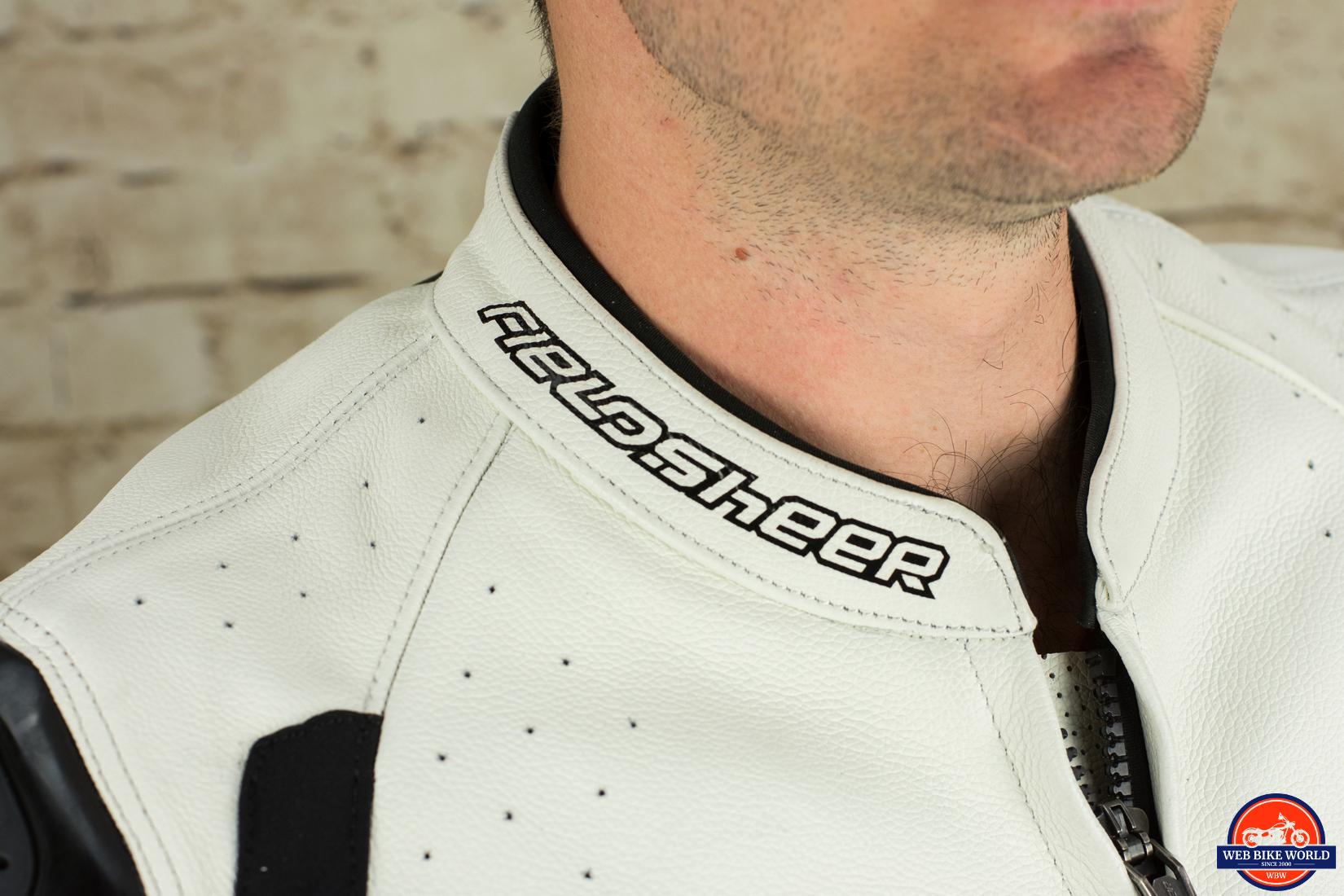
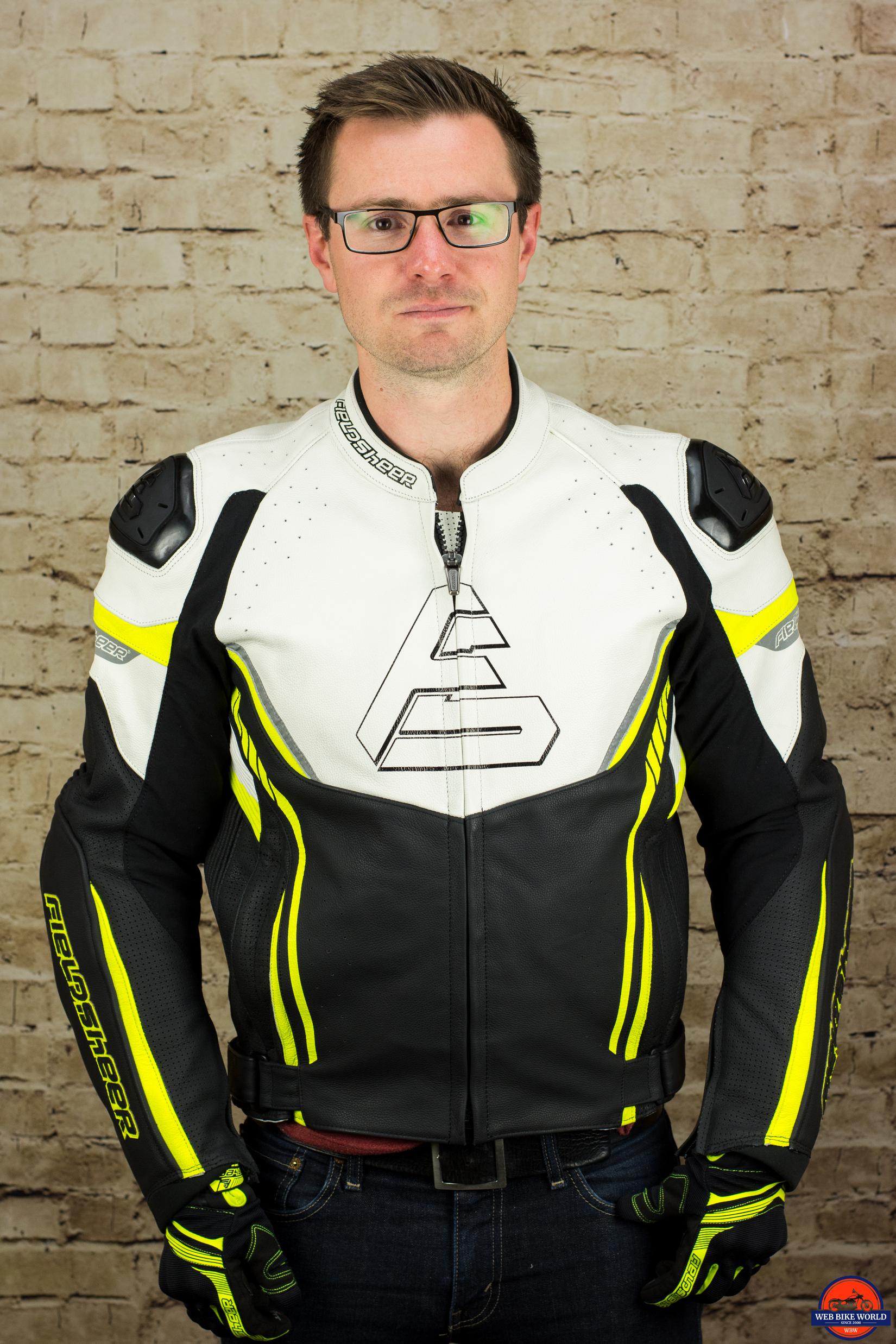
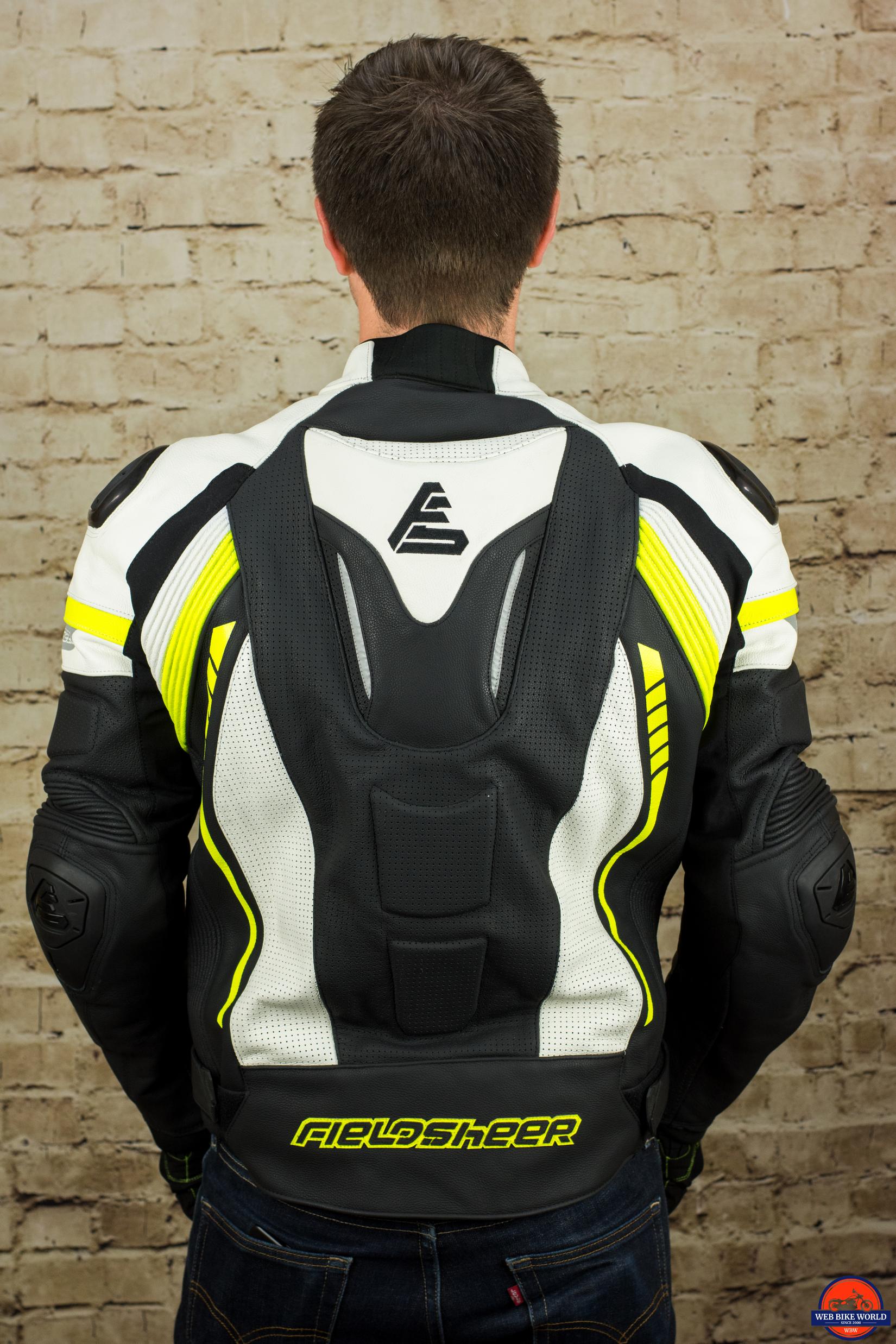
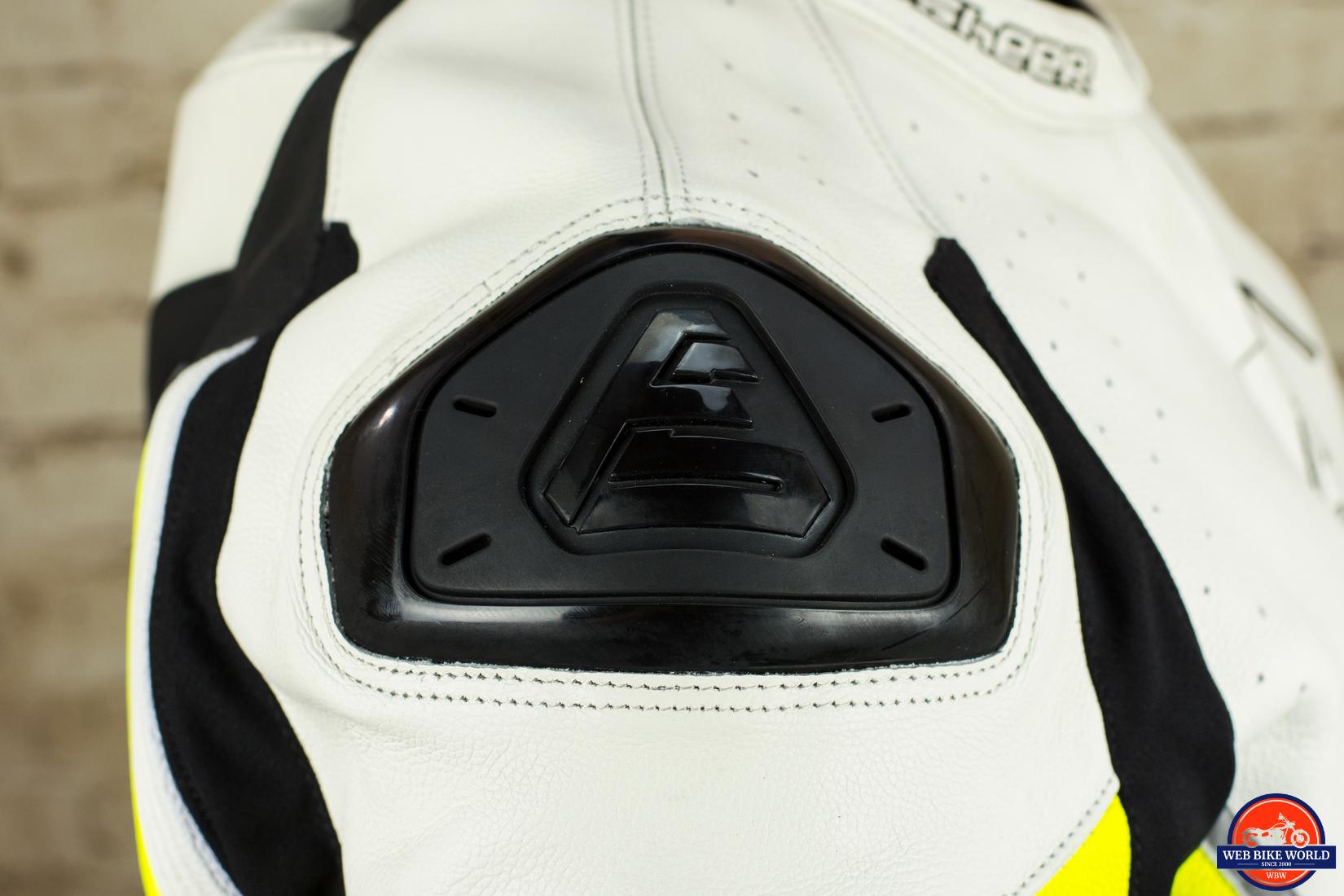
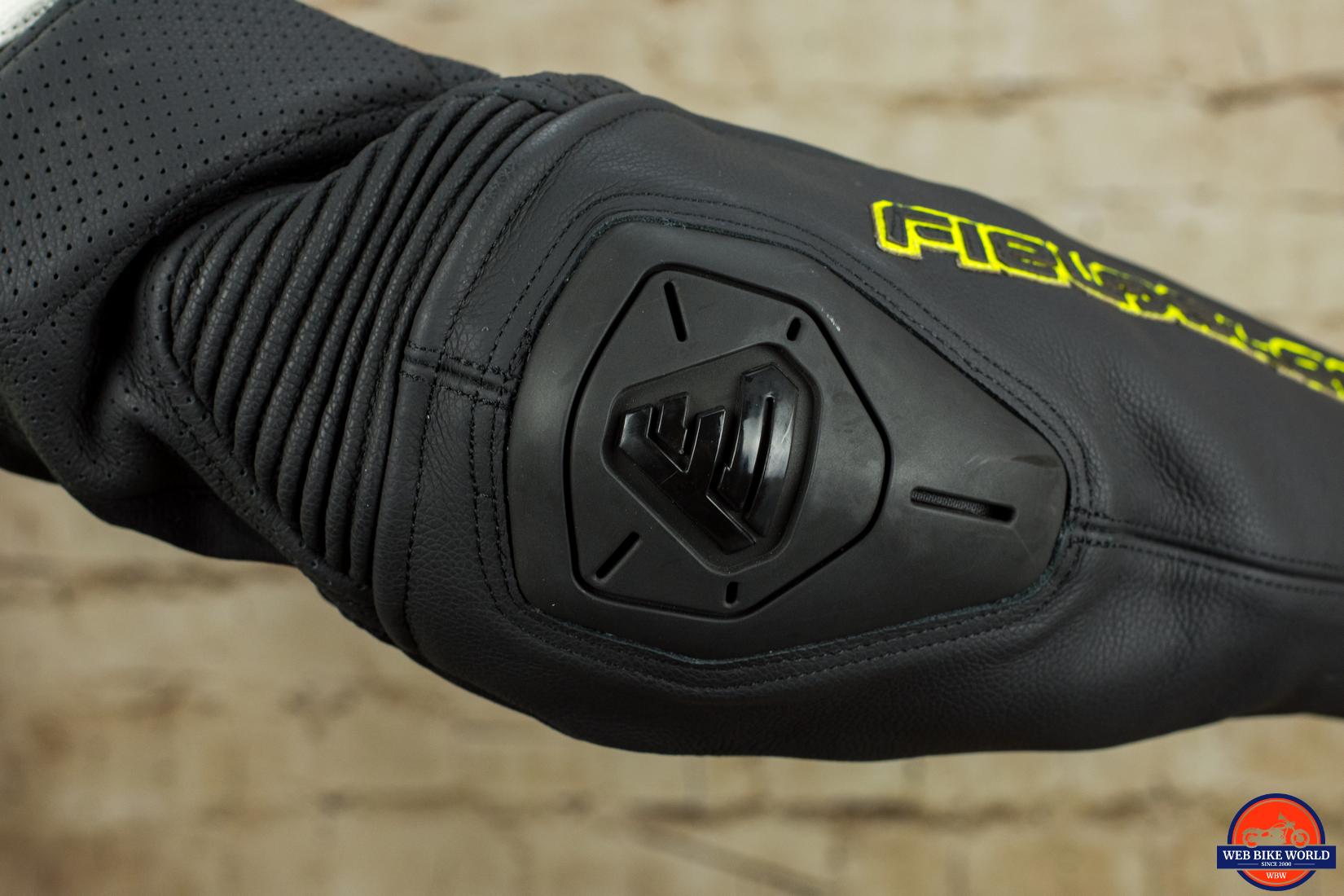
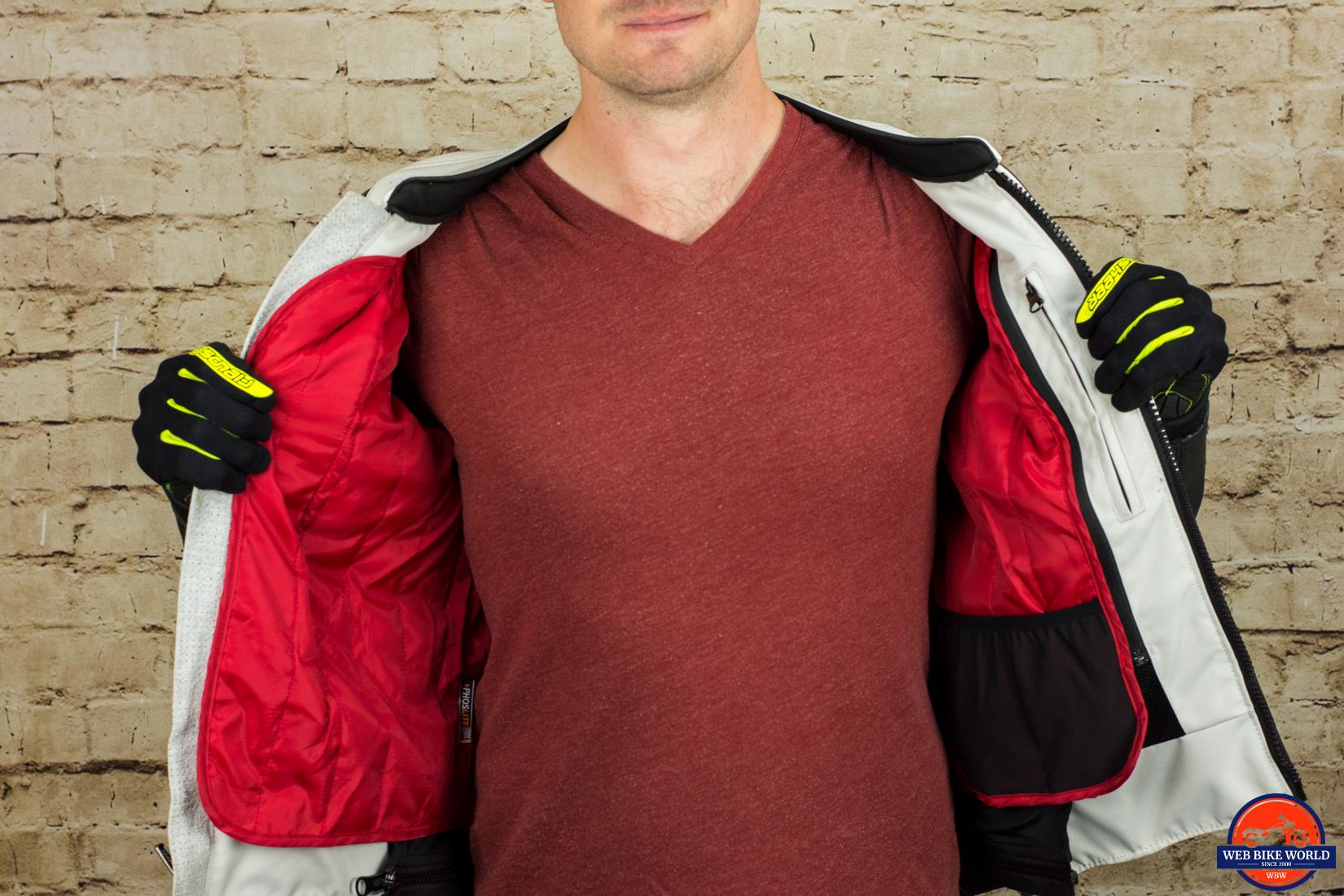
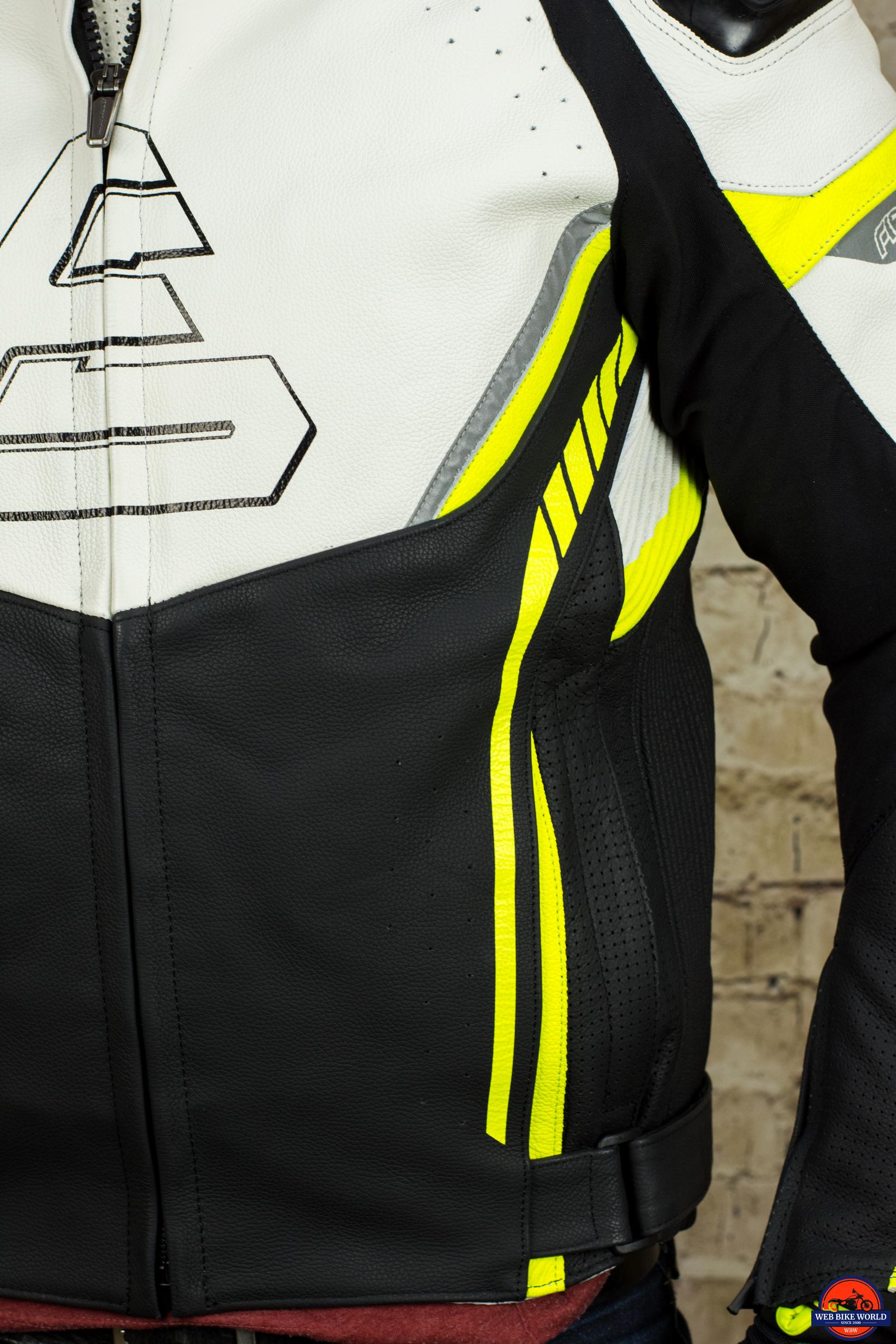
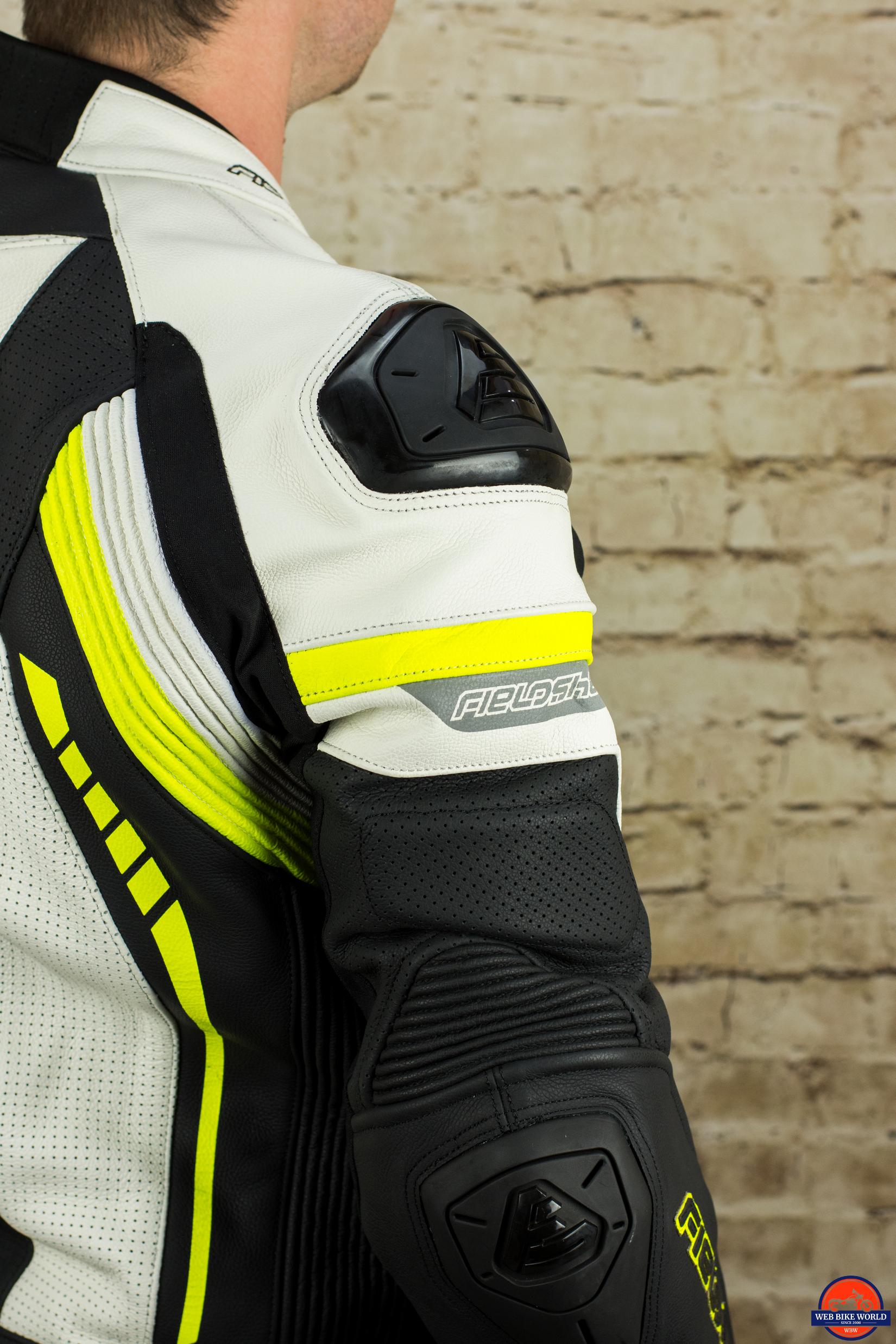
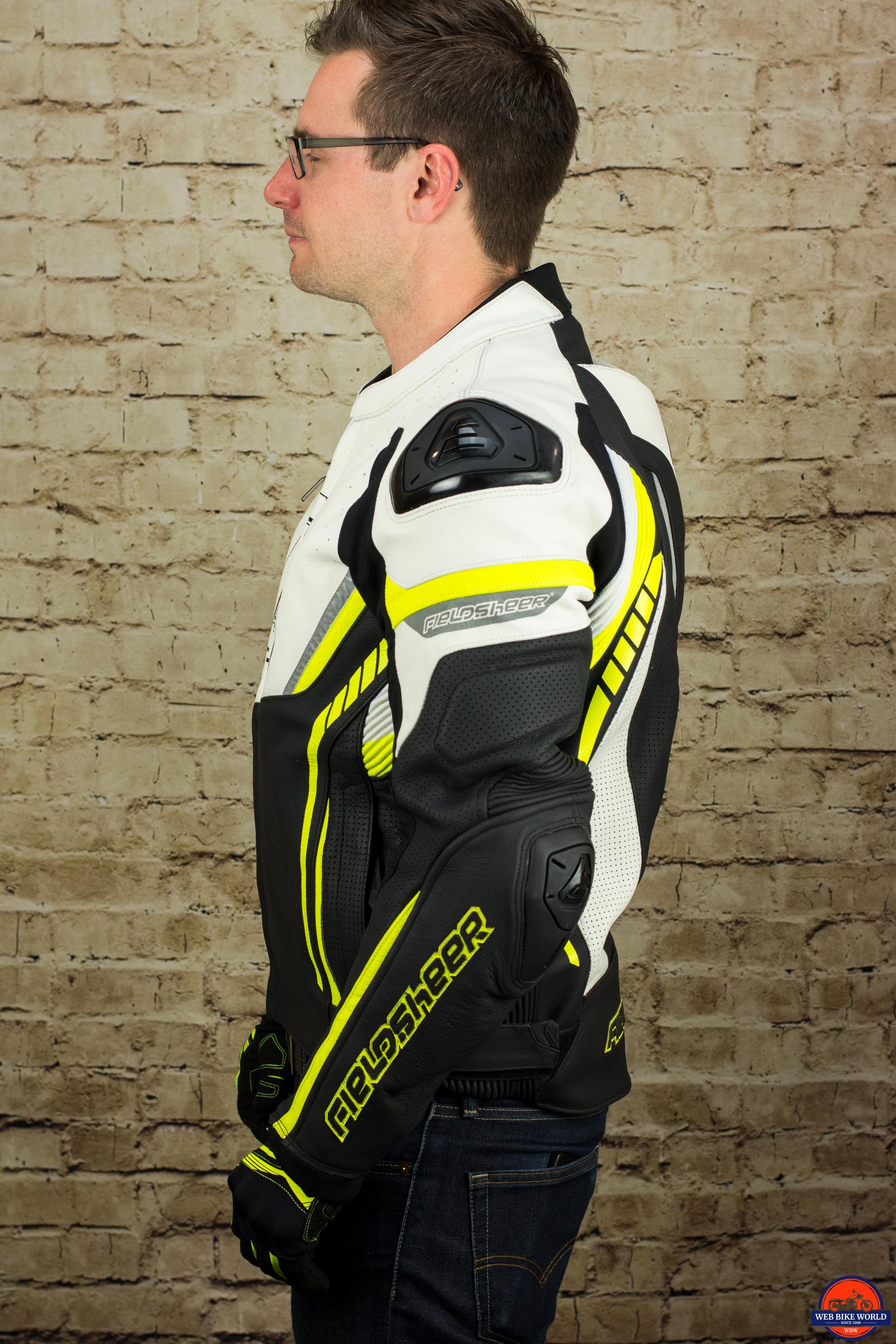
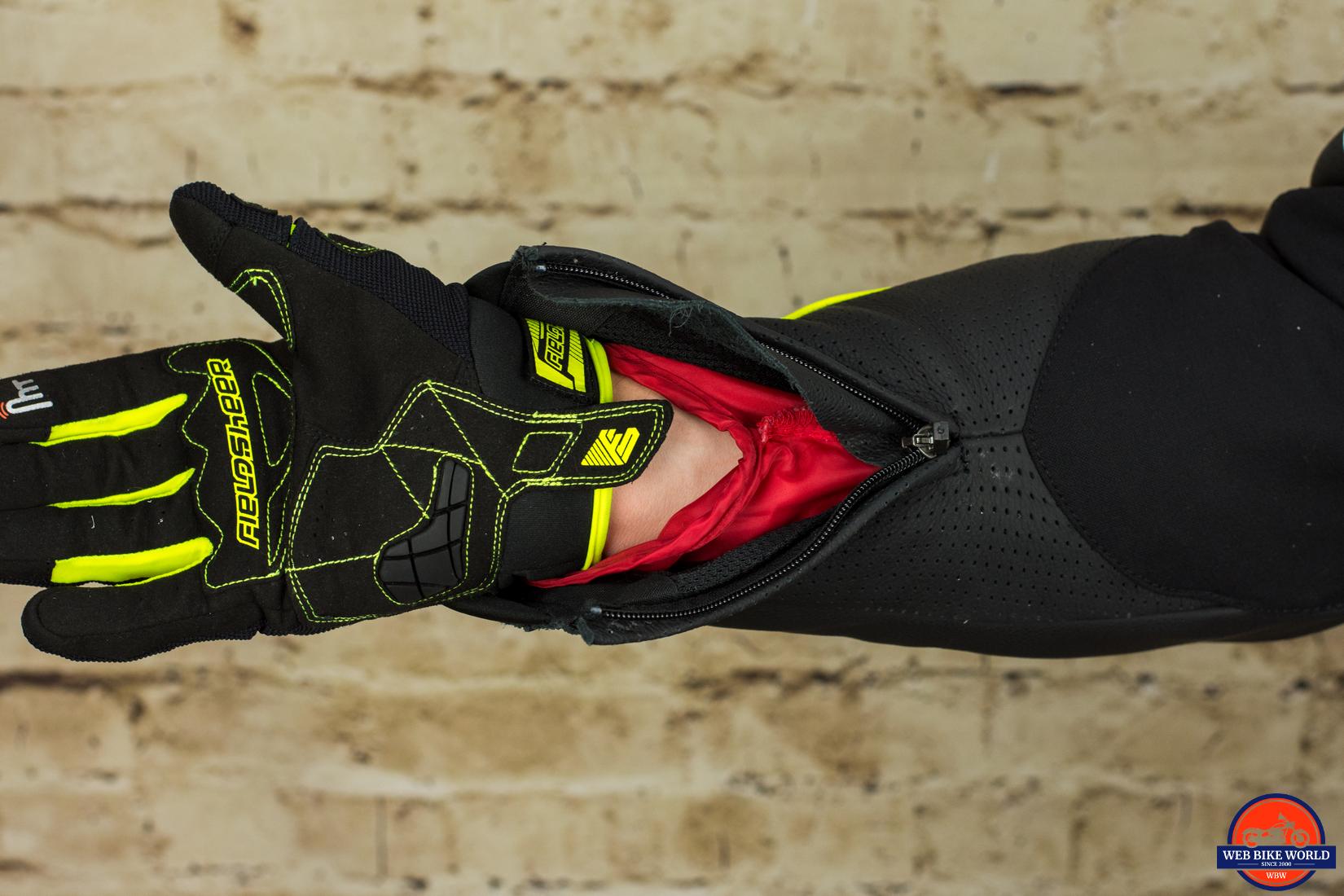
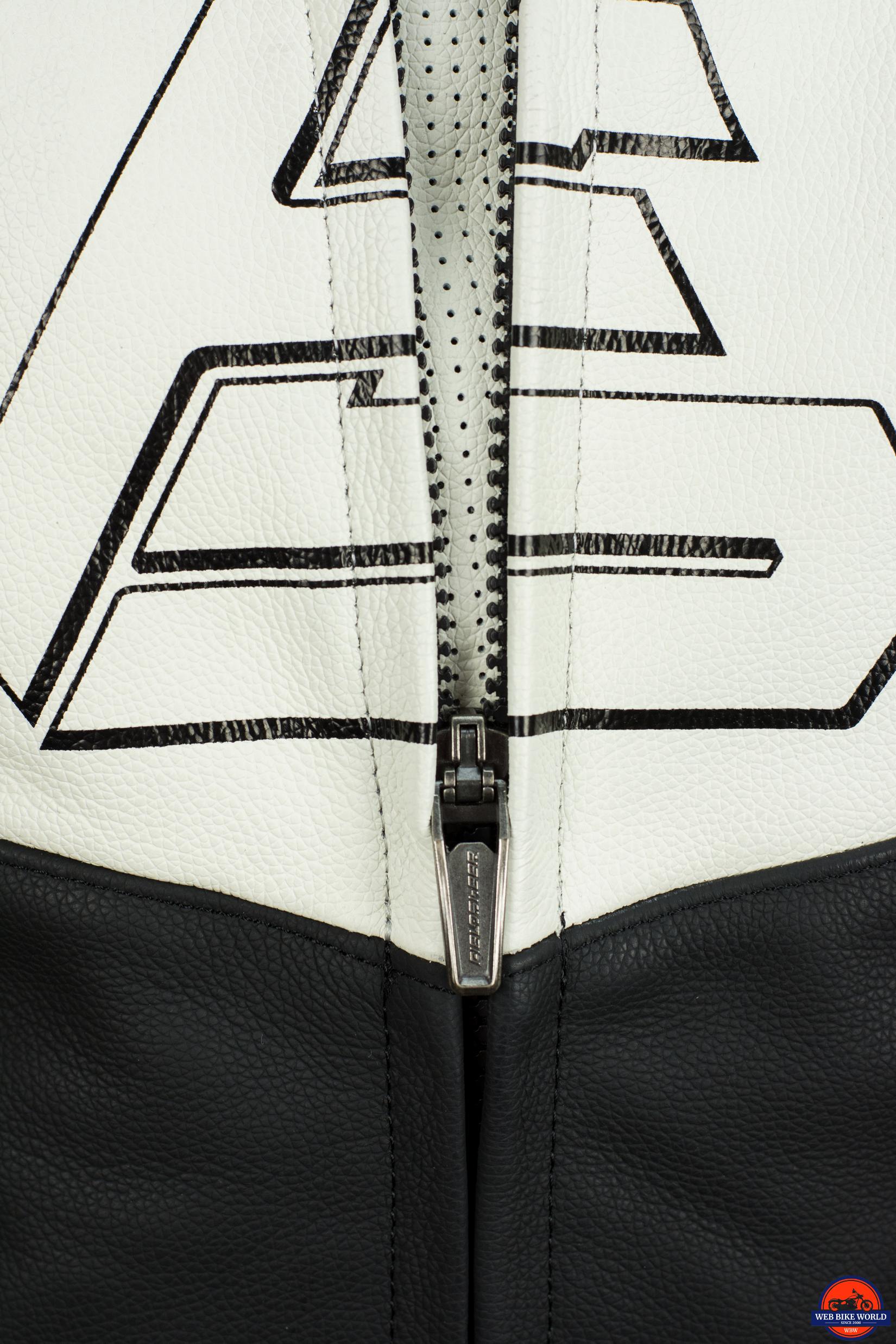
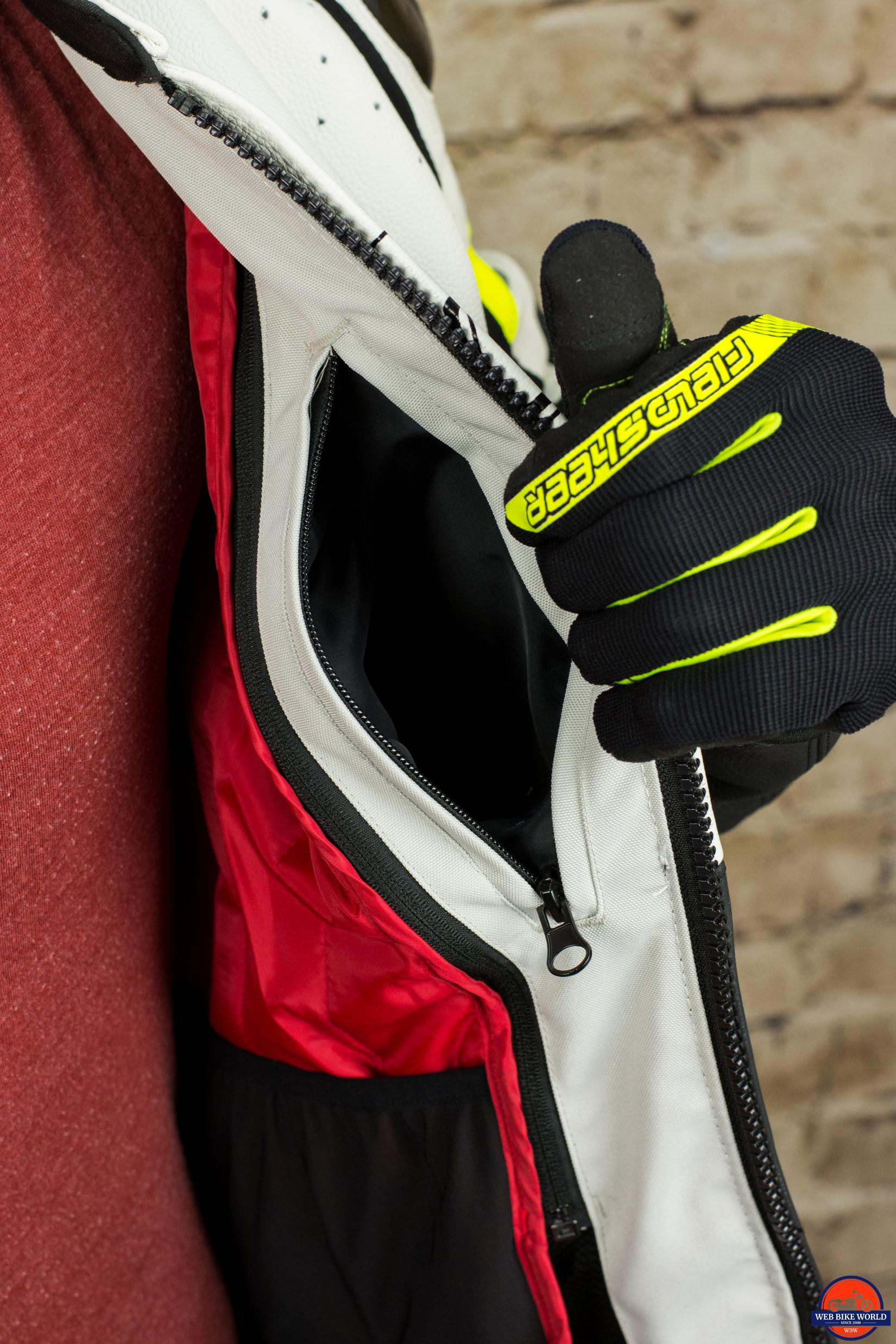

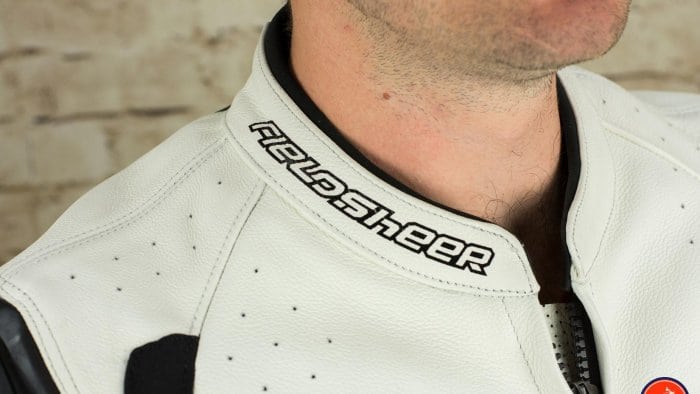
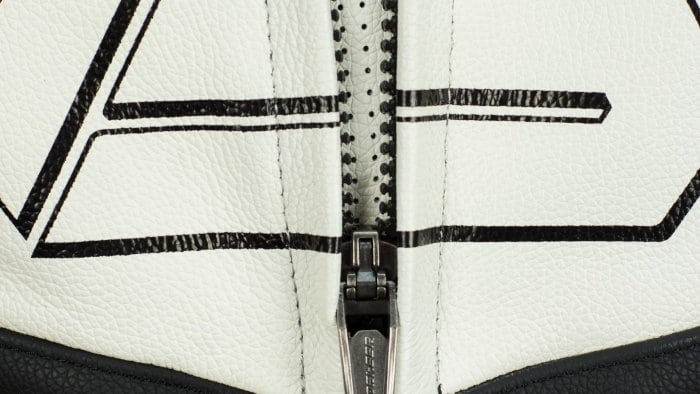

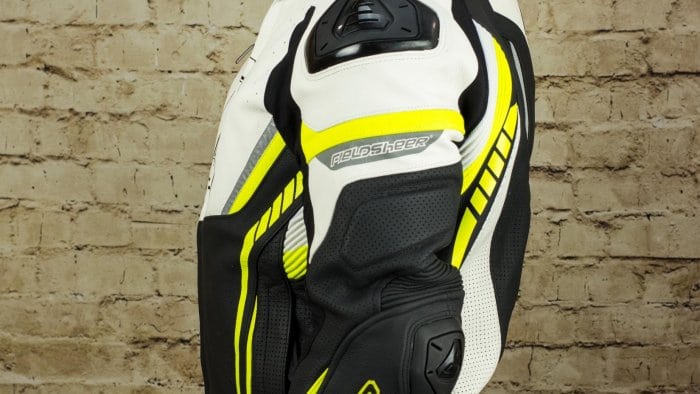
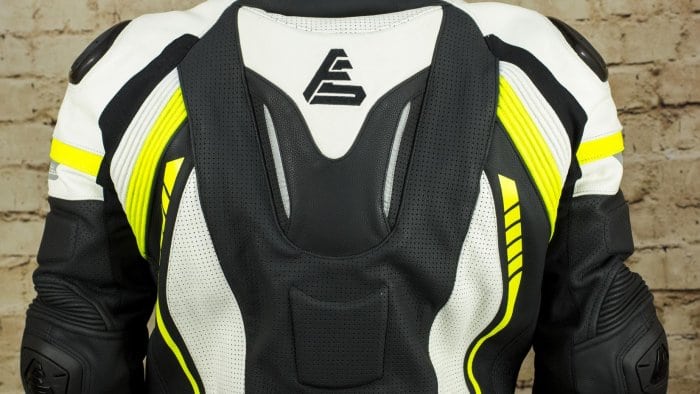

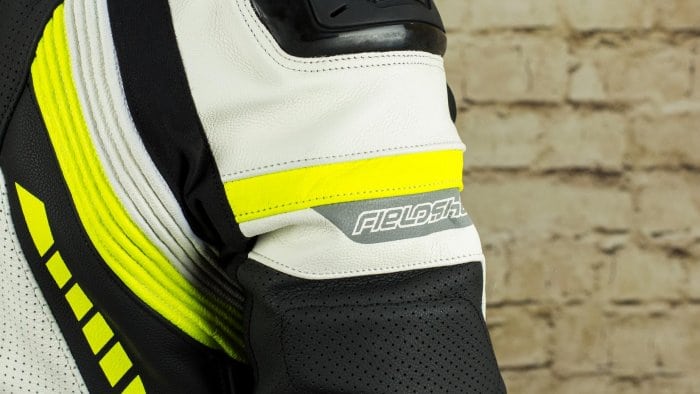
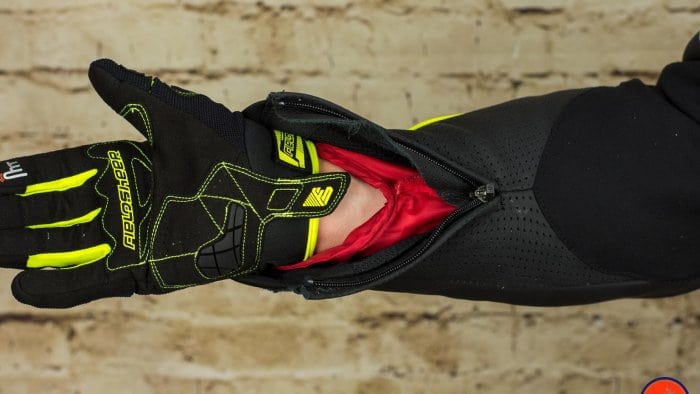

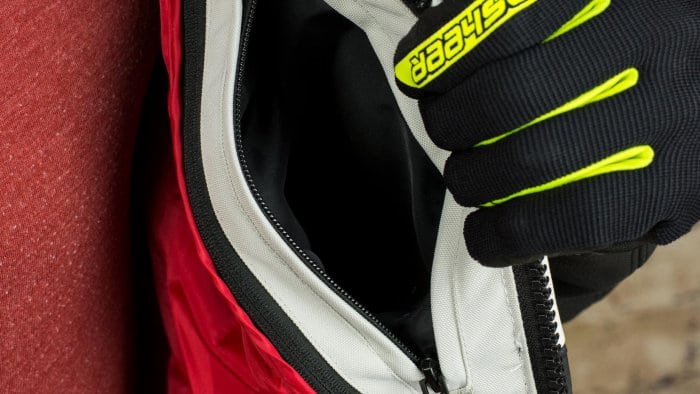
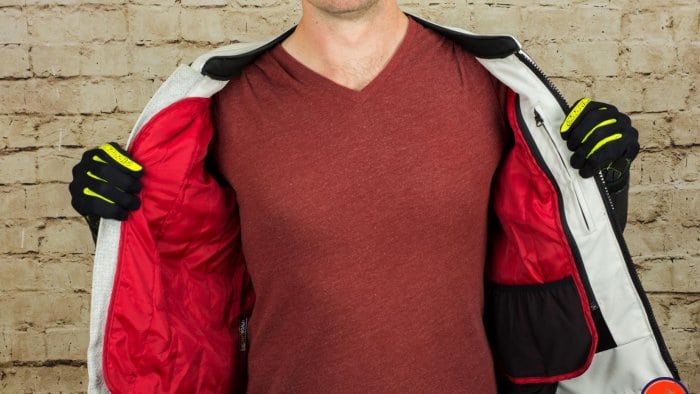

No Comment